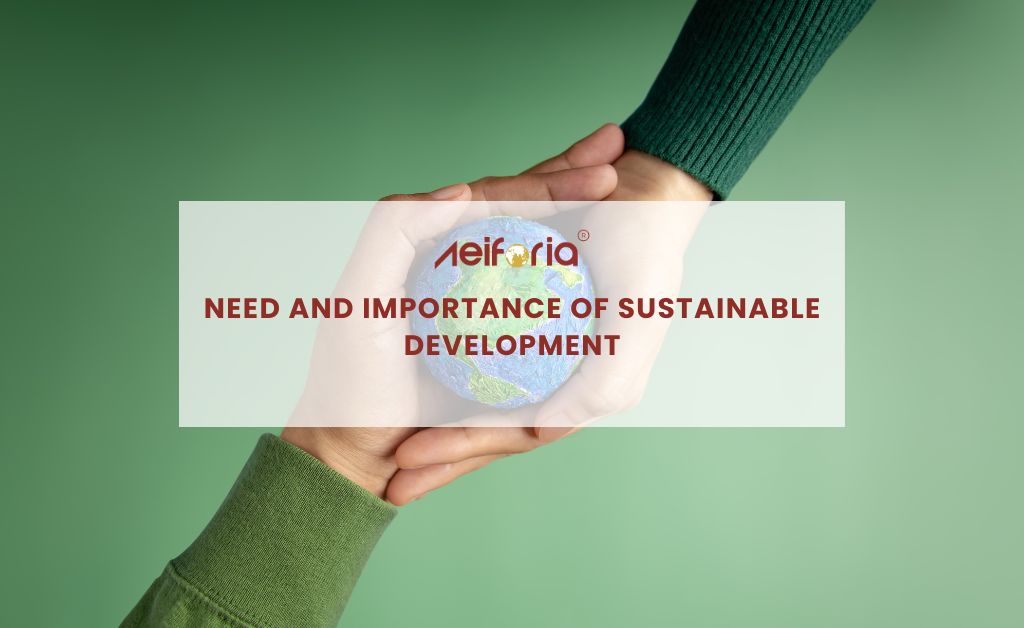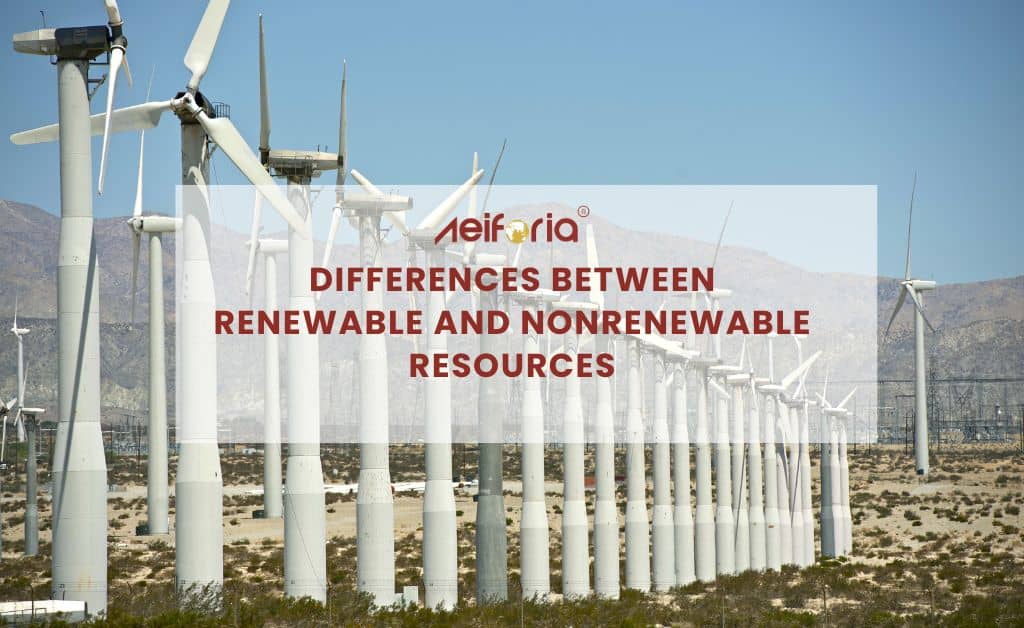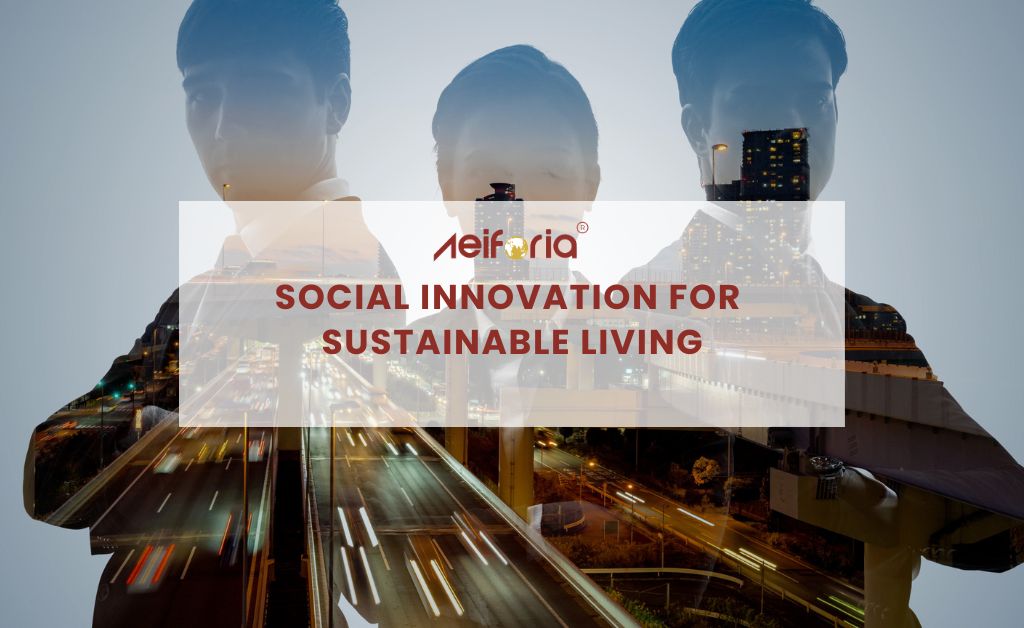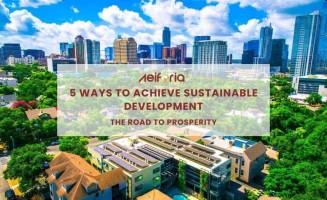
Need and Importance of Sustainable Development: Objectives, Goals
Sustainable development is a comprehensive strategy for promoting development that aims to fulfill the current generation's needs while ensuring that future generations' needs can be met without any hindrance. It involves balancing economic, social, and environmental objectives and promoting policies, practices, and technologies that are sustainable and equitable. Sustainable development ensures that economic growth is inclusive and sustainable, social well-being is improved, and environmental quality is maintained or improved. It is a long-term approach considering economic, social, and ecological interdependence. It aims to promote harmony to achieve a more sustainable and equitable world. In this blog post, we will explore the need and importance of sustainable development in more detail, highlighting why it is crucial for our planet and its inhabitants.
Need and Importance of Sustainable Development
Sustainable development is essential due to the escalating pressure on natural resources and the environment. The ever-increasing population, urbanization, industrialization, and globalization have put immense pressure on the natural resources, leading to their depletion. The depletion of natural resources, including land, water, forests, and minerals, has resulted in environmental degradation, loss of biodiversity, and climate change.
Sustainable development is necessary to ensure that we conserve our natural resources, maintain ecological balance, and mitigate the impact of climate change. The depletion of natural resources is a global problem that requires global solutions.
Sustainable development is crucial because it is essential for the long-term prosperity of businesses and economies. Sustainable business practices can increase efficiency, reduce costs, and improve customer loyalty. In contrast, sustainable economic development can create new jobs and promote innovation.
Objectives of Sustainable Development
The objectives of sustainable development are focused on addressing the environmental, economic, and social challenges facing the world today. These objectives provide a framework for promoting sustainable economic growth and ensuring that the needs of future generations are met.
Poverty Alleviation
One of the main objectives of sustainable development is poverty alleviation, aimed at reducing the number of people living in extreme poverty. Sustainable economic growth is necessary for poverty alleviation, as it creates income generation and employment opportunities. However, it's essential to ensure that economic growth is inclusive and benefits all members of society, particularly those living in poverty. This can be achieved through policies and programs that promote education and skills development, social protection programs, and targeted support for vulnerable populations.
Social Equity
Social equity is another crucial objective of sustainable development. This involves reducing inequality and ensuring that all members of society have access to essential services such as health care and education. Reducing inequality and addressing the root causes of poverty and social exclusion are necessary to achieve social equity. This can be achieved through various policy interventions, such as targeted social programs, progressive taxation, and affirmative action.
One of the key areas where social equity is significant is access to essential services such as health care and education. There are substantial disparities in access to these services in many countries, with marginalized communities often facing significant barriers to accessing quality care and education.
Environmental Protection
Environmental protection is a crucial objective of sustainable development. It seeks to ensure that natural resources are used in a way that keeps them healthy for future generations. This includes reducing greenhouse gas emissions, conserving biodiversity, and managing natural resources to maintain productivity.
To achieve environmental protection, it is vital to adopt policies and practices that minimize the harmful effects of human activities on the environment. This can be achieved by decreasing greenhouse gas emissions by shifting to sustainable and renewable energy sources, promoting energy efficiency, and implementing sustainable transportation practices.
Conserving biodiversity is another critical aspect of environmental protection. This can involve protecting endangered species, preserving natural habitats, and promoting sustainable land use practices. Effective natural resource management is also essential to ensure the long-term productivity and sustainability of critical resources such as water, forests, and fisheries.
Preserving the environment is vital to ensure our planet's survival and future generations' well-being. We can leave a healthy and thriving planet for future generations by adopting sustainable practices and policies.
Economic Development
Economic development is also an essential objective of sustainable development. It aims to promote economic growth that is inclusive and sustainable. To achieve economic development, it is necessary to promote inclusive and sustainable economic growth that benefits all members of society. This can involve creating jobs, fostering entrepreneurship, and investing in infrastructure and innovation. It also requires promoting fair trade and addressing economic inequality to ensure that economic benefits are distributed equitably.
Sustainable economic development also requires responsible resource management, including the efficient use of natural resources and reduced waste and pollution. This can involve adopting sustainable production and consumption practices, promoting circular economy models, and reducing reliance on fossil fuels.
Economic development is critical for sustainable development, providing the resources and opportunities necessary to address social and environmental challenges. By pursuing inclusive and sustainable economic growth, we can create a thriving economy that benefits everyone while protecting the planet for future generations.
Examples of Sustainable Development
- Renewable energy: Investing in renewable energy sources such as solar, wind, and hydropower can reduce reliance on fossil fuels, contributing to climate change.
- Sustainable agriculture: sustainable development goals can improve soil health, reduce water usage, and reduce the need for harmful pesticides and fertilizers.
- Green buildings: Designing and constructing energy-efficient buildings using sustainable materials can reduce energy consumption, water usage, and waste.
- Sustainable transportation: Promoting the utilization of public transportation, walking, and cycling, and promoting the use of low-emission vehicles, can reduce greenhouse gas emissions and improve air quality.
- Waste reduction and recycling: Implementing waste reduction and recycling programs can reduce the amount of waste sent to landfills, conserve resources, and reduce pollution.
- Conservation and protection of natural resources: Protecting natural resources such as forests, oceans, and waterways can preserve biodiversity, mitigate climate change, and provide essential ecosystem services.
- Sustainable tourism: Promoting sustainable tourism practices, such as responsible tourism and ecotourism, can benefit local communities, preserve cultural heritage, and reduce the negative impacts of tourism on the environment.
Goals of Sustainable Development
The United Nations has established a set of Sustainable Development Goals (SDGs) to achieve sustainable development objectives. These goals provide a framework for addressing the economic, environmental, and social challenges facing the world today. There are 17 SDGs, each with specific targets to be achieved by 2030.
Climate Action
Climate action is an essential SDG that seeks to reduce greenhouse gas emissions and limit global warming to below 2 degrees Celsius. This involves promoting renewable energy, increasing energy efficiency, and promoting sustainable land use practices.
Sustainable Cities and Communities
Sustainable cities and communities are another important SDG. It promotes sustainable urbanization by ensuring access to basic housing, transportation, and sanitation services. This involves promoting sustainable land use practices and reducing the carbon footprint of urban areas.
Affordable and Clean Energy
Affordable and clean energy is also an important SDG. It seeks to promote renewable energy sources such as wind, solar, and hydroelectric power while ensuring that energy remains affordable for all.
Responsible Consumption and Production
Responsible consumption and production are essential SDG that promotes sustainable consumption patterns. This involves reducing waste, promoting recycling, and promoting sustainable production practices.
Quality Education
Quality education is another important sustainable development goal. It aims to ensure that all children have access to quality education, regardless of socioeconomic background. This involves promoting education for sustainable development and promoting environmental education.
Gender Equality
Gender equality is also an important SDG. It ensures that women and girls have equal access to education, employment, and political representation. This involves promoting gender equality in all aspects of society.
How Can We Achieve Sustainable Development?
Achieving sustainable development requires a coordinated effort across all sectors of society, including government, businesses, and individuals. Here are some ways we can work towards a more sustainable future:
Reduce Greenhouse Gas Emissions
One of the most fundamental ways to achieve sustainable development is to reduce greenhouse gas emissions. This can be done by investing in renewable energy, promoting energy efficiency, and reducing reliance on fossil fuels.
Conserve Natural Resources
Conserving natural resources is essential for promoting sustainable development. This can be done by reducing waste, promoting recycling, and using resources to preserve them for future generations.
Promote Inclusive Economic Growth
Promoting inclusive economic growth is crucial for reducing poverty and advancing sustainable development. This requires creating economic opportunities that are accessible to all individuals and based on sustainable practices rather than benefiting only a privileged few.
Address Inequality
Addressing inequality is essential for promoting sustainable development. This involves creating inclusive societies that value diversity and ensure everyone can access basic human needs like food, shelter, and healthcare.
Invest in Education
Investing in education is essential for promoting sustainable development. This can be done by providing access to quality education for all and promoting education focused on sustainability and environmental stewardship.
Conclusion
Sustainable development is an essential concept that seeks to balance economic growth, social development, and environmental protection in a long-term sustainable way. It is needed to address the challenges of environmental degradation, social inequality, and economic instability we face today. The objectives of sustainable development are to achieve economic growth, social development, and environmental protection in a way that is entirely sustainable in the long term.
FAQs(Frequently Asked Questions)
What are the benefits of sustainable development?
Sustainable development has numerous benefits, including improved environmental quality, increased social equity, economic growth that is inclusive and sustainable, and preservation of natural resources for future generations.
What are some challenges to achieving sustainable development?
Challenges to achieving sustainable development include resistance to change, lack of political will, inadequate resources, and lack of awareness and understanding of sustainable development principles.
What can individuals do to promote sustainable development?
Individuals can promote sustainable development by adopting sustainable practices in their daily lives, such as conserving energy and water, reducing waste, and choosing environmentally-friendly products. They can also support sustainable policies and procedures through advocacy and activism.
How can businesses contribute to sustainable development?
Businesses can contribute to sustainable development by implementing sustainable business practices, such as waste reduction and greenhouse gas emissions, using sustainable materials, and investing in renewable energy sources. They can also support sustainable development policies and initiatives through corporate social responsibility programs and advocacy.
How can sustainable development help address global challenges?
Sustainable development can help address global challenges such as climate change, poverty, and inequality by providing a holistic framework for addressing these issues.






